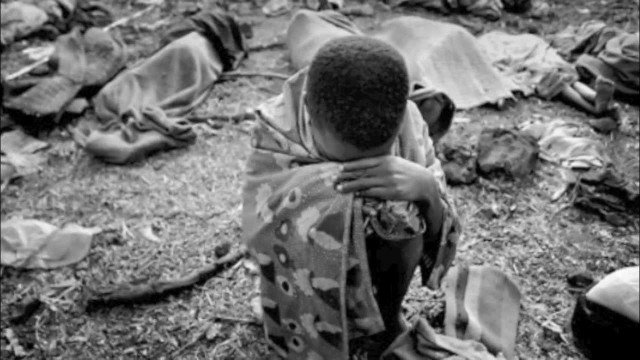
When the genocide occurred in Rwanda, I was a young father with two small children working 60-80 hours a week trying to make ends meet. I remember vaguely a few 2 minute news stories about some killings in Africa – a place far, far away. It was sad, but so very distant.
Years later I watched a movie entitled Hotel Rwanda. I didn’t know what it was about when I started the movie, yet 2 hours later I was shaken to the core. Although the movie takes some liberties, it did open my eyes to the horrors of what had occurred in this little African country.
In 1994, over a period of 100 days nearly 1 million people were brutally slaughtered across the country. Most were hacked to death with machetes by their own neighbors!
Until my recent visit to Rwanda, what I did not know was that many of the killings occurred in churches. Thousands ran to local churches seeking sanctuary. Praying they would find hope inside its walls. Instead of houses of hope, most churches became slaughterhouses.
I had no idea the role that churches played in the genocide.
Likewise, I was unaware of the role that churches have played in the country since.
From Rwanda I discovered four crucial realities that every church must take into consideration.
1. Churches can either be complicit or catalytic, but never complacent.
The genocide in Rwanda was not a fluke. The events that happened in April, 1994 began over 30 years prior as ethnic tensions between the Hutus and the Tutsis simmered.
The cultural environment that the church found itself in was toxic. The problem was that the salt of the church had become flavorless.
Churches sat on the sidelines viewing the cultural decay as something for the politicians to address.
Most of the Rwandan churches at that time were busy with business as usual, oblivious to the impending storm. Some were even complicit.
Jesus sent some strong warnings to the 7 churches of Revelation. He meant for His church to be salt and light, catalytic change agents that send out a clear clarion call against the tide of culture.
2. Every church has a reputation.
When the killing finally stopped and the country began to put itself back together, churches resumed services, but the people didn’t return.
The stigma of the church’s inaction and ineptitude left a bitter taste in the mouths and memories of the Rwandans.
The church found itself in a difficult situation.
They had lost the trust of the people they were meant to care for.
Even the good pastors that risked their lives to rescue people during the killings found themselves victims of the bad reputation that the church had earned.
Pastors began to meet together, across denominational lines, to pray and strategize.
They unified around a central theme: to once again become the hands and feet of Jesus in their communities, to restore hope and healing to a hurting nation.
When the people saw the pastors get serious about love, unity and Jesus, they began to trust again.
3. Churches can transform their communities.
Instead of crusades or rallies or marketing campaigns, the pastors chose to tackle the giants within their communities.
Giants like orphans, AIDS, malaria, addiction, poverty and illiteracy.
And what happened next is nothing short of a miracle!
These pastors joined hand in hand to systematically take down these giants one by one. Let me give you just one example: Orphans
Before the genocide there were almost no orphans in all of Rwanda.
After the genocide there were over 75,000.
Because of the church, nearly all the orphanages in Rwanda have been put out of business. Today less than 3,000 orphans remain.
When we get serious about BEING the church and not just DOING church, miracles happen!
4. Churches are only as strong as their mobilization factor.
I cannot tell you how many incredible stories of churches making a difference that I witnessed in Rwanda, but I can tell you what they all had in common.
They all had mobilized their members to become difference-makers in the community.
These churches had more going on Monday-Saturday than they did on Sunday.
Their churches were filled with empowered servants using their God-given SHAPE to minister to their community.
If you walked into one of their services and asked, “Excuse me, but who’s the minister of this church?” they would all stand up and cry out in unison, “I am!”
Today, 22 years later, the church has become the central healing station for the country. Rwanda is now ranked the safest country in Africa. Its streets are clean. Its government is free from corruption. The people are friendly and you can literally smell hope in the air.
That’s what happens when the church behaves as designed.

No Comments